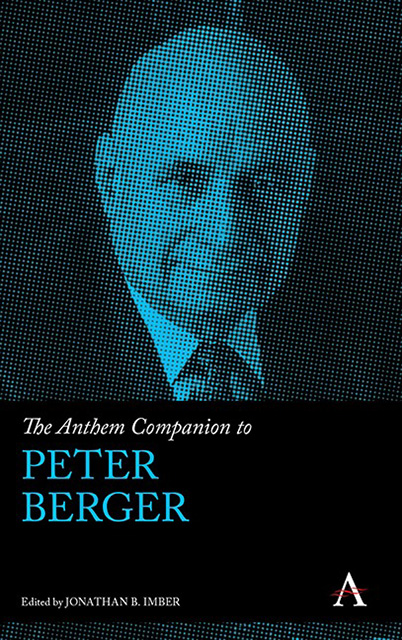Book contents
- Frontmatter
- Contents
- Introduction
- Chapter 1 Plurality, Choice, and The Dynamics of Doubt
- Chapter 2 Peter L. Berger and The Challenge of Modern Pluralism
- Chapter 3 Making Peace With Pluralism In America
- Chapter 4 Religion and Secularity in A Desecularizing Russia
- Chapter 5 The Moral Limits of Religious Pluralism
- Chapter 6 Peter L. Berger and Arnold Gehlen: Secularization, Institutions and Social Order
- Chapter 7 Peter L. Berger’s Three Religions
- Chapter 8 Objectivation: The Material Heritage of Peter L. Berger
- Chapter 9 Peter L. Berger’s The Social Construction of Reality
- Chapter 10 The Untaken Road to Phenomenological Sociology
- Chapter 11 Cheering for Capitalism
- Chapter 12 Peter L. Berger and Economic Sociology
- Chapter 13 Peter L. Berger Changed The Direction of My Work … and My Life
- Chapter 14 Peter L. Berger On Religion as Choice Rather Than Fate
- List of Contributors
- Index
Chapter 4 - Religion and Secularity in A Desecularizing Russia
Published online by Cambridge University Press: 17 October 2023
- Frontmatter
- Contents
- Introduction
- Chapter 1 Plurality, Choice, and The Dynamics of Doubt
- Chapter 2 Peter L. Berger and The Challenge of Modern Pluralism
- Chapter 3 Making Peace With Pluralism In America
- Chapter 4 Religion and Secularity in A Desecularizing Russia
- Chapter 5 The Moral Limits of Religious Pluralism
- Chapter 6 Peter L. Berger and Arnold Gehlen: Secularization, Institutions and Social Order
- Chapter 7 Peter L. Berger’s Three Religions
- Chapter 8 Objectivation: The Material Heritage of Peter L. Berger
- Chapter 9 Peter L. Berger’s The Social Construction of Reality
- Chapter 10 The Untaken Road to Phenomenological Sociology
- Chapter 11 Cheering for Capitalism
- Chapter 12 Peter L. Berger and Economic Sociology
- Chapter 13 Peter L. Berger Changed The Direction of My Work … and My Life
- Chapter 14 Peter L. Berger On Religion as Choice Rather Than Fate
- List of Contributors
- Index
Summary
Following Russia’s annexation of Crimea in the spring of 2014 and the outright invasion of its neighbor in February of 2022, military aggression and the political machinations of Vladimir Putin have dominated discussions on Russia. With tens of thousands of people killed in the conflict thus far, including many women, children, and elderly, a topic such as religion in Russia seems perhaps crass. But, in fact, the Kremlin’s military adventurism and Russian society’s relationship with religious belief share a common critical factor—the question of identity—both Russian and Ukrainian. Additionally, both Russia’s irredentist position vis-à-vis its neighbor to the west and the evolution of its church–state relations towards a relationship of quasiestablishment can be traced back to its Soviet past, from which even after three decades it is still recovering. For during its 70 years in power, the Communist leadership did more than rearranging lines on maps and shuffling populations to and fro; it sought nothing less than the secularization of the population under its control. While in the end that population rose up against the regime, the dismantling of the Soviet system has proven harder than anyone ever expected, and the effects of its secularization policies more profound and complex than Marx, Engels, or Lenin could ever have imagined.
It is this history which makes Russia such an interesting case to apply Peter Berger’s “two-pluralisms” paradigm for the understanding of the relation between modernity and religion. Anyone even slightly familiar with contemporary Russia can attest to the fact that myriad forms of religious beliefs and practices are ubiquitous across Russia today, not just various Orthodox groups but Pentecostals and Baptists alongside Muslims of just about every strand, from the most pacifistic to the most radical. Clearly, Russia today is not a society easily characterized as secular. But this should come as a surprise, because for 70 years the regime had closed off civil society almost in toto and carried out far-reaching policies of forced secularization. Once these policies were liberalized and eventually lifted in the final days of the USSR; however, religion underwent a renaissance, resulting in the complex religious landscape present in Russia today.
- Type
- Chapter
- Information
- The Anthem Companion to Peter Berger , pp. 35 - 46Publisher: Anthem PressPrint publication year: 2023

